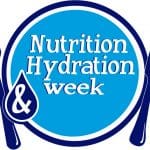
Re-evaluating Your Caffeine Intake
March is National Caffeine Awareness Month. The vast majority of us consume caffeine on a daily basis, usually from tea and coffee, but also from energy drinks and soft drinks.
Caffeine is a regular when it comes to tabloid headlines, with opposing findings and conclusions when it comes to the recommended amount and the pros and cons it can bring to your health. The overall caffeine intake guidance is that we should consume no more than 400mg per day – this is approximately 3-4 cups of coffee. Be aware that this is decreased to 200mg per day if you are pregnant.
Caffeine intake can become something of a habit rather than a craving, your cup of tea first thing in the morning, a coffee for the journey to the office, with a fresh mug at your desk as you start the day. However, this level of intake can easily lead to caffeine addiction. Symptoms include being irritable, depressed or disorientated after consuming caffeine. You may also experience headaches and drowsiness if you go without for an extended period of time.
Caffeine Awareness Month brings a great opportunity to re-evaluate your caffeine intake and adjust this where necessary. As with everything, caffeine comes with it’s own pros and cons, and is best consumed in moderation in order to avoid the cons listed below.
Caffeine Pros
- Improved focus and attention
- Improved athletic performance
- Decreased risk of Parkinson’s disease development
- Protection against Alzheimer’s disease and cardiovascular disease
- Decreased risk of diabetes
- Improved digestion
- Protection against liver disease and gout
- Lowered risk of death – studies have shown that regular consumers overall risk of premature death is decreased by 25%
Caffeine Cons
- Increased risk of migraine headaches
- Increased risk of anxiety and panic attacks
- Potential increased risk of heart palpitations
- Disrupted sleep
- Decreased ability to absorb calcium, leading to an increased risk of osteoporosis
- Mildly increases blood pressure
- Potential for weight gain due to an increased intake of milk, sugar and syrups
For more about healthy eating please click on the boxes below.
To discuss our Employee Nutrition Services, call 07810 716758 or email Anna.


